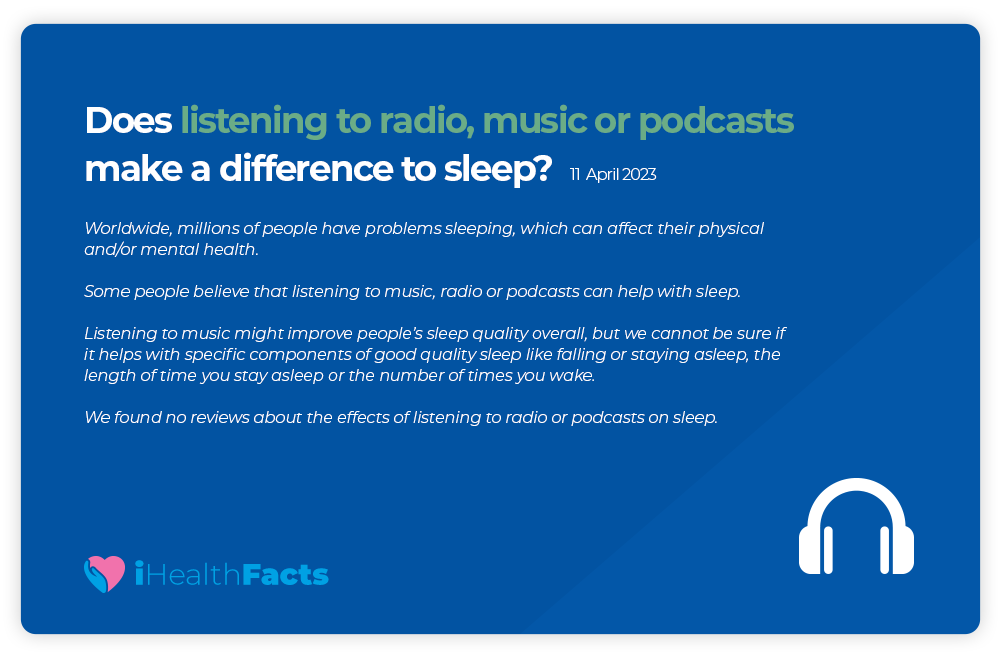The Evidence
- Worldwide, millions of people experience insomnia (sleep problems). People can have problems with certain aspects of sleep, like falling asleep, staying asleep or having poor overall sleep quality.
- We found two systematic reviews that looked at whether music improves sleep, but we did not find any reviews about radio or podcasts.
- The first review looked at two types of studies: questionnaires that people filled in themselves (self-reporting) and tests (EEG and polysomnography) to measure sleep.
- In the self-reporting studies:
- 10 studies looked at sleep quality and found that music improved people’s overall quality of sleep by a large amount. We can be moderately certain of this finding.
- Two research studies used a tool called ISI to measure insomnia in people who were officially told they had insomnia. However, these studies didn’t clearly show if listening to music affected their insomnia.
- Music might improve other aspects of sleep, such as how quickly a person falls asleep, the length of time a person is asleep and the amount of time a person is asleep compared to the total time spent in bed, but the current evidence means we can’t be sure of this.
- The three studies that used tests to measure sleep found no evidence that music improved how quickly people fall asleep, total sleep time, sleep interruption or the amount of time asleep compared with the amount of time in bed.
- The second review looked at studies of people diagnosed with insomnia (but included some people that were not diagnosed). Different types of music and music in combination with other things, like acupuncture, were ranked to see which was best. The study found that:
- When people were asked to judge how well they slept, they reported that any type of music, whether by itself or combined with other elements, helped them sleep better.
- When it comes to improving the quality of sleep, only relaxing with music worked better than usual habits. Improvements caused by other types of music might have been due to chance.
- Music-assisted relaxation and listening to music were best for falling asleep more quickly.
- Listening to music and doing exercise to music improved sleep efficiency (how long you are asleep compared to how long you are in bed).
However, we cannot be very certain of these findings because the studies differed from each other and had small numbers of people in them and the types of music treatments compared.
Guidelines and recommendations
- The HSE says that listening to calming music before bedtime may be relaxing for people with sleep problems. This might help the body get ready for sleep. However, the HSE does not offer any evidence for this claim.
